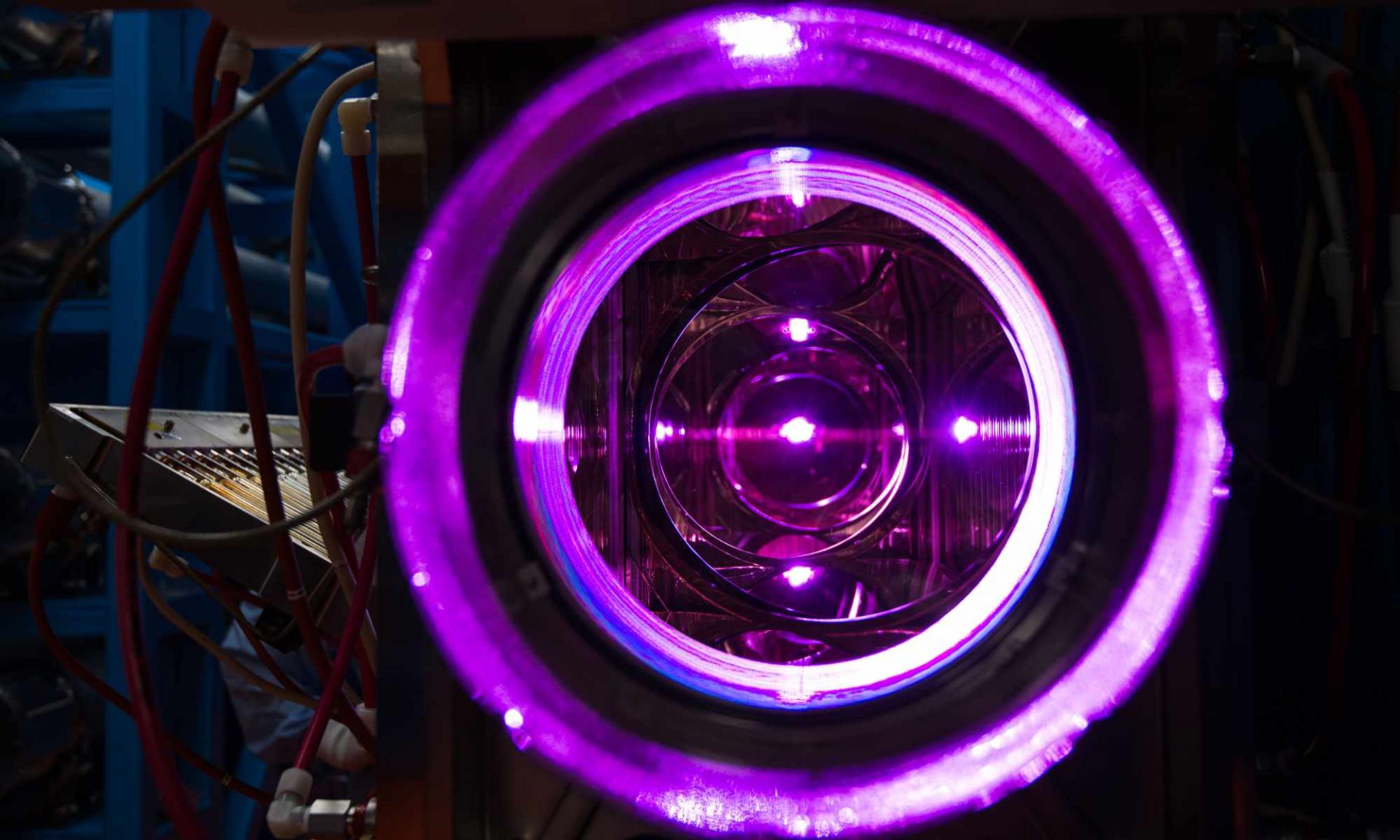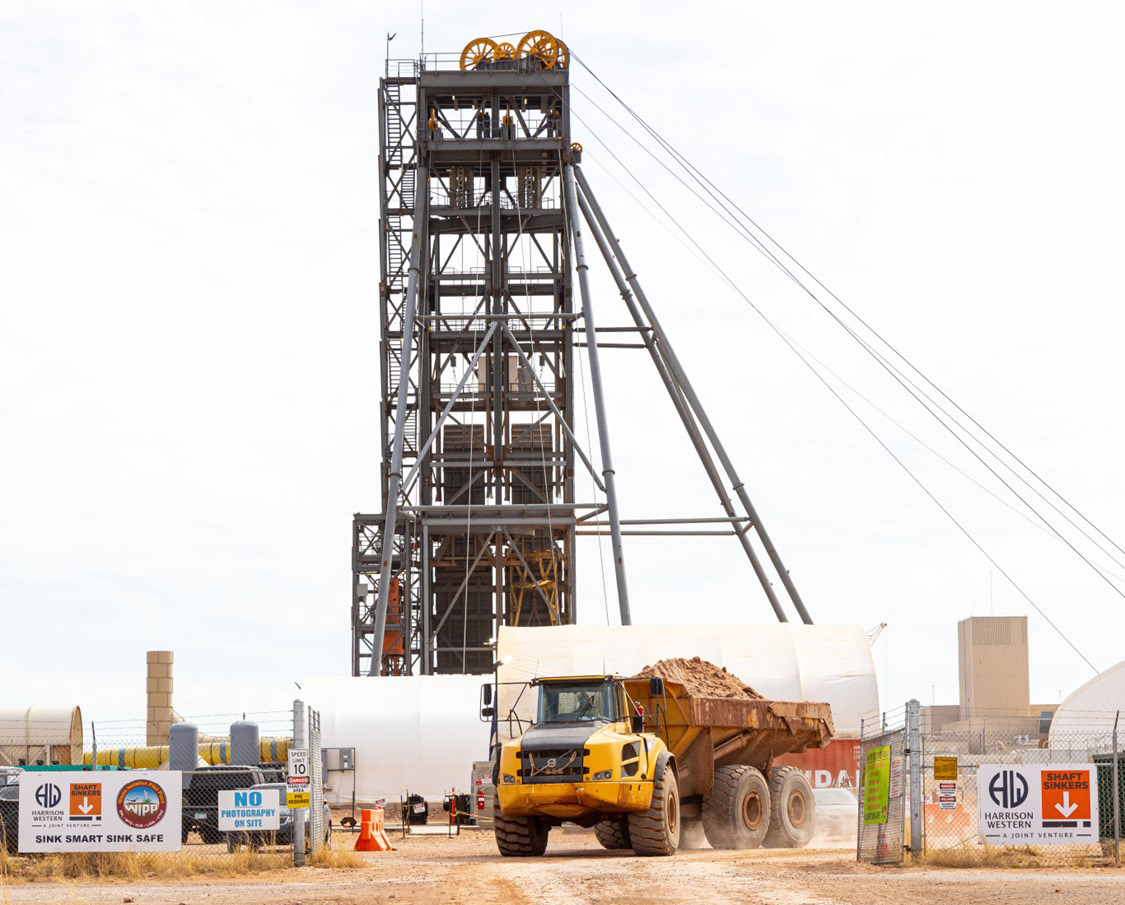A view of the Low-Activity Waste Facility at the Hanford Site. (Photo: DOE)
The National Academies of Sciences, Engineering and Medicine (NASEM) recently held a public meeting to discuss its third and final report centered on the Department of Energy’s Office of Environmental Management’s tank waste cleanup mission at the Hanford Site in Washington state.
Seaborg cofounder Eirik Eide Pettersen (left) and Norsk Kjernekraft CEO Jonny Hesthammer at a letter-of-intent signing ceremony. (Photo: Seaborg)
Denmark’s Seaborg Technologies and Norsk Kjernekraft (aka Norwegian Nuclear Power) have signed a letter of intent to investigate the possibility of deploying Seaborg’s 100-MWe compact molten salt reactor (CMSR) in Norway.
ORNL has developed an automated metrology system to produce Pu-238 pellets. (Photo: ORNL)
The Department of Energy recently shipped half a kilogram of plutonium oxide pellets from Oak Ridge National Laboratory to Los Alamos National Laboratory, the agency announced July 18, marking the largest such shipment since the DOE restarted domestic plutonium-238 production over a decade ago.
Savannah River National Laboratory employee Vernon Bush, center, and SRNL summer intern Jadrion Huell, standing at right, of Claflin University, conduct a job shadowing activity with students Tredarius Lassiter, seated at left, and Tommy Applewhite. (Photo: DOE)
A three-day Minority Serving Institutions Partnership Program (MSIPP) event, led by Savannah River National Laboratory researcher Simona Hunyadi Murph, was held recently at the South Carolina site, according to a release by the Department of Energy’s Office of Environmental Management (DOE-EM). The event included a collaborative workshop, job shadowing, and a tour of the laboratory and Savannah River Site field activities.
NNSA administrator Jill Hruby surveys the Administrative Boundary Line at South Ossetia. Russia occupies Georgian territory on the other side of the line. (Photo: NNSA)
National Nuclear Security Administration administrator Jill Hruby and deputy administrator for defense nuclear nonproliferation Corey Hinderstein visited the country of Georgia in southeastern Europe last month to discuss the NNSA’s bilateral partnerships, seek areas of cooperation, and get a closer look at how nuclear security is implemented at active border crossings in the region.
View of the machine controls electronics of Centrus’s HALEU demonstration cascade. (Photo: Centrus)
TerraPower and Centrus Energy Corp. announced on July 17 that they have signed a memorandum of understanding to “significantly expand their collaboration aimed at establishing commercial-scale, domestic production capabilities for high-assay, low-enriched uranium (HALEU)” to supply fuel for TerraPower’s first Natrium reactor. Nearly three years ago, TerraPower first announced plans to work with Centrus to establish commercial-scale HALEU production facilities. The two companies signed a contract in 2021 for services to help expedite the commercialization of enrichment technology at Centrus’s Piketon, Ohio, facility.
From left: Petr Brzezina, president, Westinghouse Czech Republic and Slovakia; Elias Gedeon, senior vice president, Westinghouse commercial operations; Gautam Rana, U.S. ambassador to Slovakia; and Pavol Štuller, chairman of the board and chief executive officer, JAVYS. (Photo: Westinghouse)
Westinghouse Electric Company yesterday announced the signing of two memorandums of understanding with Slovakia’s state-owned nuclear company JAVYS regarding the potential deployment of the U.S. firm’s AP1000 reactors and AP300 small modular reactors.
A view through the 20-cm disk amplifiers of the OMEGA laser at the University of Rochester’s Laboratory for Laser Energetics. (Photo: University of Rochester/J. Adam Fenster)
Proponents of inertial fusion energy celebrated in December 2022, when researchers at the National Ignition Facility at Lawrence Livermore National Laboratory achieved fusion ignition by subjecting a carefully crafted diamond cryogenic sphere containing frozen deuterium-tritium fuel to NIF’s laser energy. NIF has yet to repeat the feat, in part because that facility was not designed to produce fusion energy, and ignition requires near-perfect targets. For inertial fusion energy to serve as a reliable power source, it will require swift, reliable, and economic target production.
Portsmouth’s X-326 Process Building undergoes demolition in 2022. (Photo: DOE)
The Department of Energy’s Office of Environmental Management awarded a 10-year contract worth up to $5.87 billion to Southern Ohio Cleanup Company (SOCCo) of Aiken, S.C., for the decontamination and decommissioning of the DOE’s Portsmouth site in southern Ohio. SOCCo is a newly formed limited liability company comprising Amentum Environment and Energy, Fluor Federal Services, and Cavendish Nuclear (USA) Inc.











.jpg)



